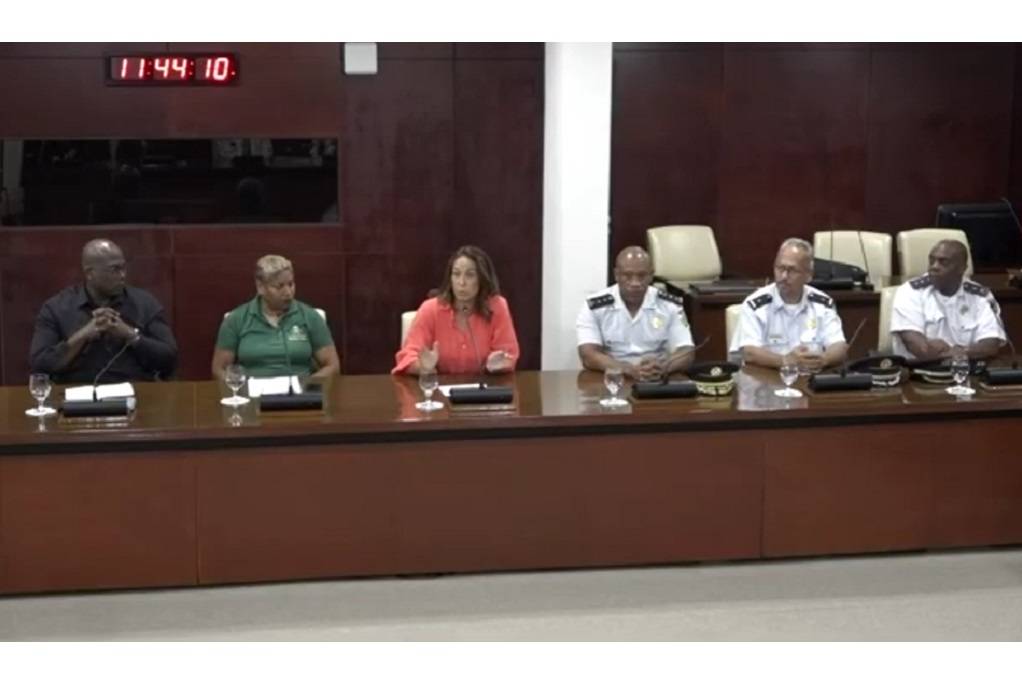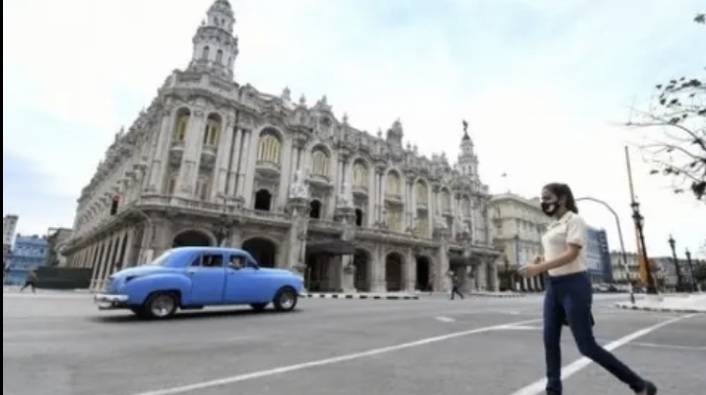Sint Maarten prepares for 2024 Parliamentary Election

Already under the yoke of inflation and product scarcity, many Cubans don’t know how to cope with a new 500-percent surge in fuel price. The communist island’s cash-strapped government announced the five-fold increase Monday, with effect from February 1, as part of a series of measures seeking to cut its budget deficit. The cost of a liter of regular gasoline will rise from 25 pesos (20 US cents) to 132 pesos, while premium gasoline will jump from 30 to 156 pesos, it said.
To buy ten liters of fuel for his motorbike - enough for a week - Domingo Wong told AFP he would now have to fork over half his monthly salary of about 21 dollars. “Ten liters is what I use in a week without doing anything special, just the daily: going to work, bringing my daughter to school, visiting my sister,” the 57-year-old building guard said as he waited patiently in line to fill up his bike.
State-owned companies and private carriers will be able to buy fuel “at wholesale prices,” which will increase by 50 percent, Transport Minister Eduardo Rodriguez said on Tuesday. He added that most public transport fares will maintain “their current prices” but announced major increases in domestic airline tickets and inter-province bus fares.
The nation of 11 million people is experiencing its worst economic crisis since the collapse of the Soviet bloc in the 1990s due to the consequences of the coronavirus pandemic, the tightening of US sanctions in recent years, and structural weaknesses in the economy. According to official estimates, the Cuban economy shrank by two percent in 2023, while inflation reached 30 percent in 2023. Independent experts say this is likely an underestimation.
Fuel and other basics are already hard to come by. Cuba’s government, which subsidizes almost all essential goods and services, already intimated last month it would have to increase fuel prices. “The country can not maintain the price of fuel, which is the cheapest in the world,” said Economy Minister Alejandro Gil. The government on Monday also confirmed a 25-percent rise in the price of electricity for major residential consumers, as well as an increase in the price of natural gas.
Many Cubans now fear even worse inflation. “Prices in general will increase because even the food we eat depends on transport,” motorbike taxi driver Rafael Olivier, 21, told AFP in Havana. Javier Vega, a 33-year-old driver for a ride-hailing company, said he feared the effect on trip prices in a country where public transport is already limited due to a shortage of fuel and car parts. Energy Minister Vicente de la O Levy said the price hike was precisely meant to curb shortages, “to buy fuel,” and have “a stable supply.”
Authorities also announced tourists will now pay for fuel in foreign currency, also in short supply and said the Central Bank was considering adjusting the exchange rate against the dollar. The peso has been devalued twice since 2021. Economist Omar Everleny Perez told AFP that fuel may be cheap in Cuba compared to the rest of the world, “but if you compare it with salaries in the country, it is costly.” “Our purchasing power is not enough; it will affect all of us,” said independent worker Juan Antonio Cruzata, 59. The average Cuban salary is the equivalent of about 40 dollars per month.
She assured that the public could expect a smooth and trustworthy experience as preparations for polling stations are underway at each location being equipped with necessary materials and that every aspect of the election, from the ballots to the polling station and staff training, is being carefully managed.
Tackling said the goal of the Central Voting Bureau is to provide a seamless and transparent process, inspiring confidence in the democratic system of Sint Maarten.
She noted Sint Maarten is adapting to new changes this year with the legislative removal of the curtain from the voting booth, which will be implemented with the continued assurance of a secret ballot.
Tackling added that there will be no International Observers for this year’s election.
Also speaking at the conference, Chief of Police Carol John said traffic rules will be strict to deal with congestion as he noted there will be four large cruise ships at port.
The police force is asking supporters to adhere to election day conditions and not to create any disturbance at polling stations or congestion. The rule of five metres away from the polling station will be strictly maintained.
The Police Force of Sint Maarten will also not tolerate any form of public disorder on the streets.
And with Sint Maarten experiencing load shedding issues recently and concerns raised about a steady electricity supply on election day, Troy Washington, N.V GEBE’s Temporary Manager, said there should be sufficient capacity on Thursday.






0 Comment